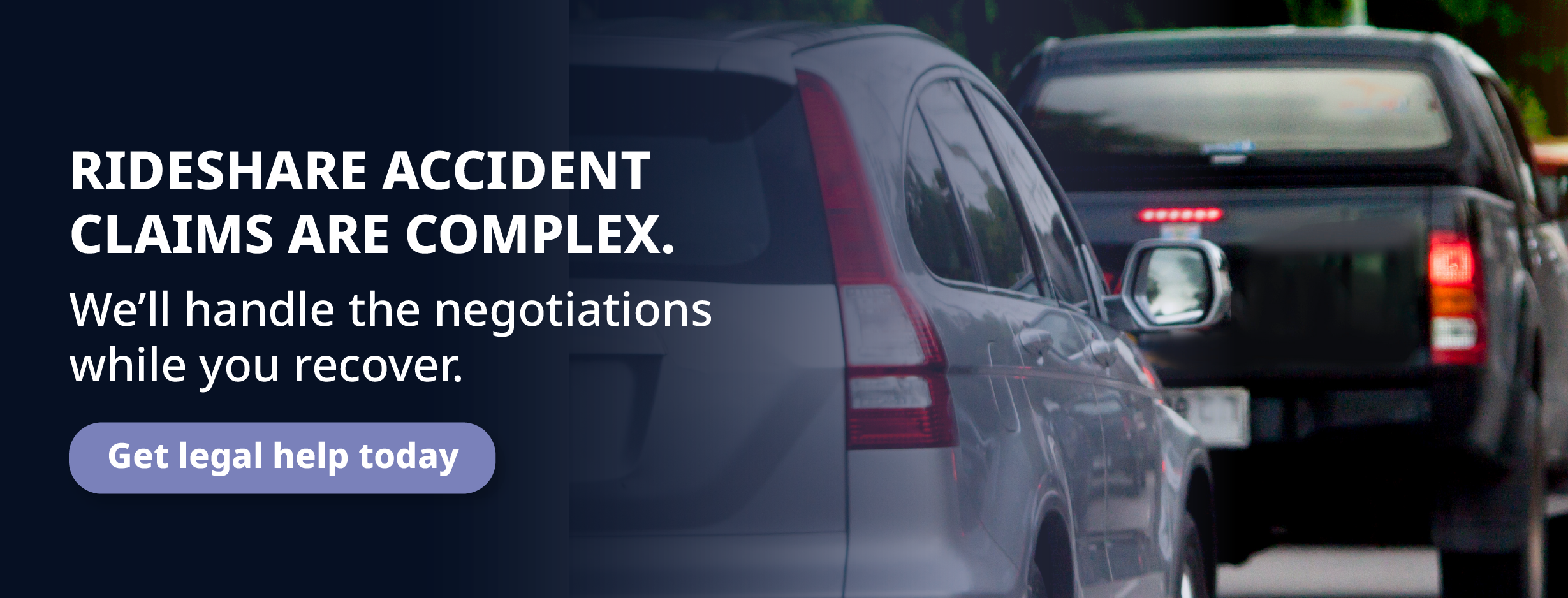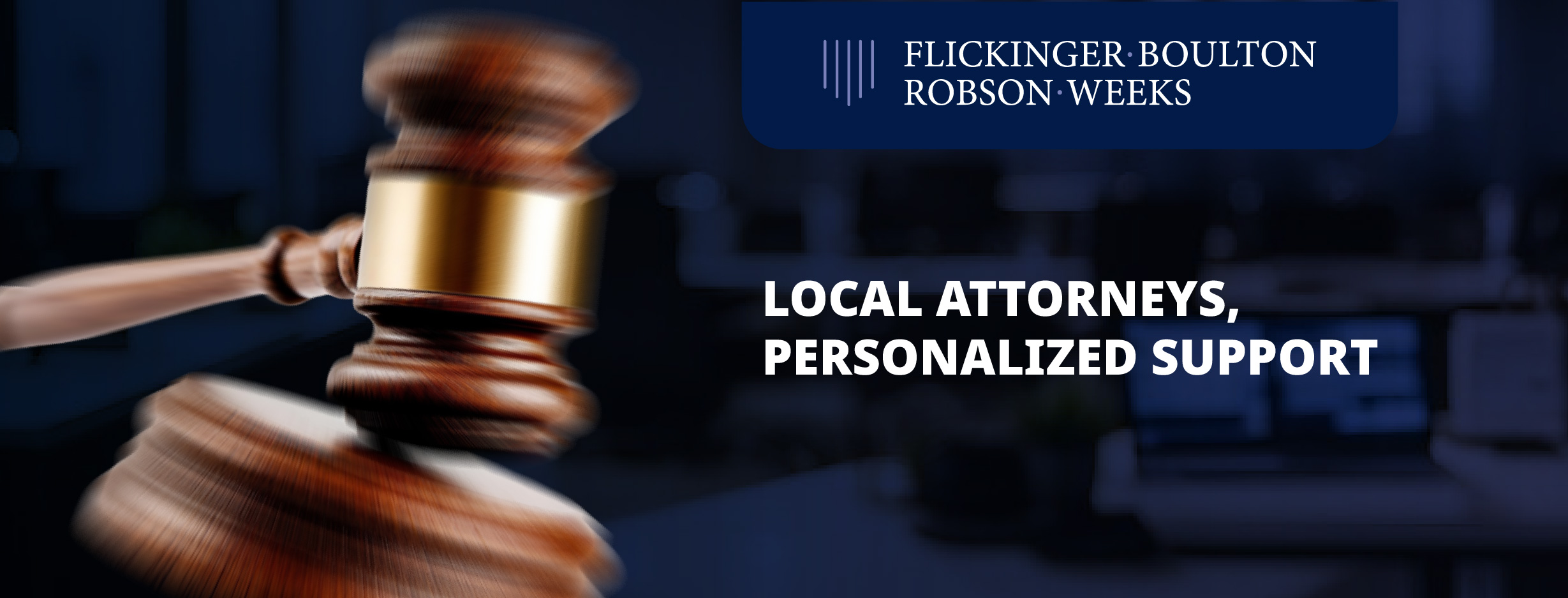Filing an insurance claim after a rideshare accident can be confusing, especially when multiple parties and insurance policies are involved. Whether you were a passenger in an Uber or Lyft, a rideshare driver, or another motorist affected by the crash, determining which insurance coverage applies and how to pursue compensation can be challenging.
At Flickinger Boulton Robson Weeks, we understand the complexities of rideshare accident claims and are here to guide you through the process. Our experienced Utah rideshare accident lawyers will help you navigate insurance company tactics, policy limits, and legal requirements, ensuring you receive the compensation you deserve.
Don’t let insurance companies undervalue or deny your claim. Contact our team of experienced Utah rideshare accident lawyers today for a free consultation, and let us fight for your rights.

Rideshare drivers use their vehicles for both personal and commercial purposes, creating unique insurance challenges. Unlike traditional auto insurance policies that cover personal driving, rideshare drivers must have coverage that applies while they are actively working for Uber, Lyft, or other rideshare services.
To address this, rideshare companies provide additional coverage, but it is not always comprehensive. Understanding these differences is crucial for drivers, passengers, and accident victims when filing an insurance claim.
A standard personal auto insurance policy typically includes the following:
However, traditional auto insurance does not cover commercial activities, meaning a rideshare driver’s personal policy may deny a claim if the driver was working for Uber or Lyft at the time of an accident.
Rideshare companies provide varying levels of coverage depending on the driver’s status in the app:
Since coverage changes depending on the driver’s activity, determining which policy applies after an accident can be complicated. At Flickinger Boulton Robson Weeks, we help accident victims understand which insurance policy covers their claims and fight for the maximum compensation available.
When a rideshare accident occurs, determining which insurance company is responsible for covering damages can be a complex process. Multiple insurance policies may apply, including the rideshare company’s coverage, the rideshare driver’s personal policy, and the insurance of any other involved motorists.
Navigating these overlapping policies often leads to disputes, delays, and denied claims.
One of the biggest challenges in rideshare accident claims is establishing which insurance policy should cover the damages. The applicable policy depends on what the rideshare driver was doing at the time of the accident:
This tiered structure leads to disputes between insurance companies, with each party attempting to shift responsibility onto another insurer.

At Flickinger Boulton Robson Weeks, we handle all communication and negotiations with insurance companies to ensure you are not taken advantage of. Contact us today to protect your rights and pursue the compensation you deserve.
Filing an insurance claim after a rideshare accident can be a complicated process, especially when multiple parties and insurance policies are involved.
Following the right steps and avoiding common pitfalls is essential to increase your chances of receiving full and fair compensation. Here are some essential tips to help you navigate the claims process effectively.
Having clear and well-documented evidence can significantly strengthen your insurance claim. Be sure to:
Insurance companies may try to minimize your payout, so be careful when discussing the accident:
Navigating rideshare insurance claims can be overwhelming, but an experienced attorney can handle negotiations, gather additional evidence, and fight for full compensation. At Flickinger Boulton Robson Weeks, we ensure that insurance companies do not take advantage of you. Contact us today for a consultation.
Filing an insurance claim after a rideshare accident can be overwhelming, especially when multiple parties and policies are involved. While some minor accidents may be handled without legal assistance, many cases require an attorney’s expertise to ensure fair compensation.
Knowing when to involve a knowledgeable rideshare accident lawyer can make a significant difference in the outcome of your claim.

If the accident resulted in serious injuries or long-term medical complications, a lawyer can help you:
Insurance providers often use tactics to reduce or deny payouts. A lawyer can assist if:
In rideshare accidents, multiple parties may be involved, including the driver, the rideshare company, or another motorist. A lawyer can:
Getting good legal guidance ensures you do not settle for less than you deserve. At Flickinger Boulton Robson Weeks, we will protect your rights and fight for the compensation to which you are entitled. Contact us today for a free consultation.
UTAH INJURY LAWYERS
Flickinger • Boulton
• Robson • Weeks
PROVO OFFICE
3000 N University Ave
Suite 300
Provo, UT 84604
SOUTH JORDAN OFFICE
10393 S. Temple Dr.
Suite 103
South Jordan, Utah 84095
OFFICE HOURS
Monday- Friday: 8AM-5PM
Saturday-Sunday: Closed
*Disclaimer: the information provided by this website is for informational purposes only and should not be considered legal advice or a substitute for competent legal counsel.
**SMS consent and contact phone numbers will not be shared or sold to third parties or their affiliates for any purpose.
© 2025 All Rights Reserved.